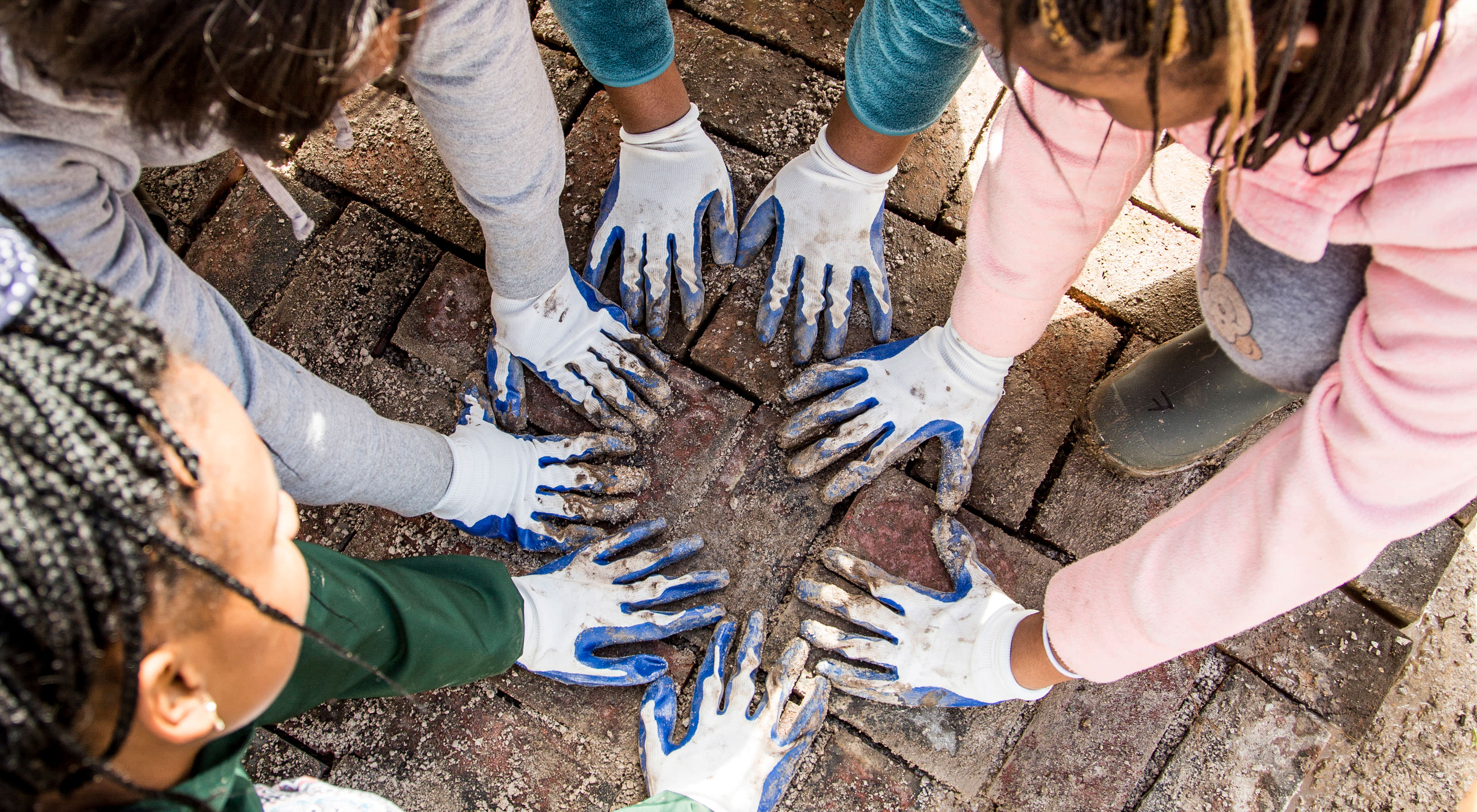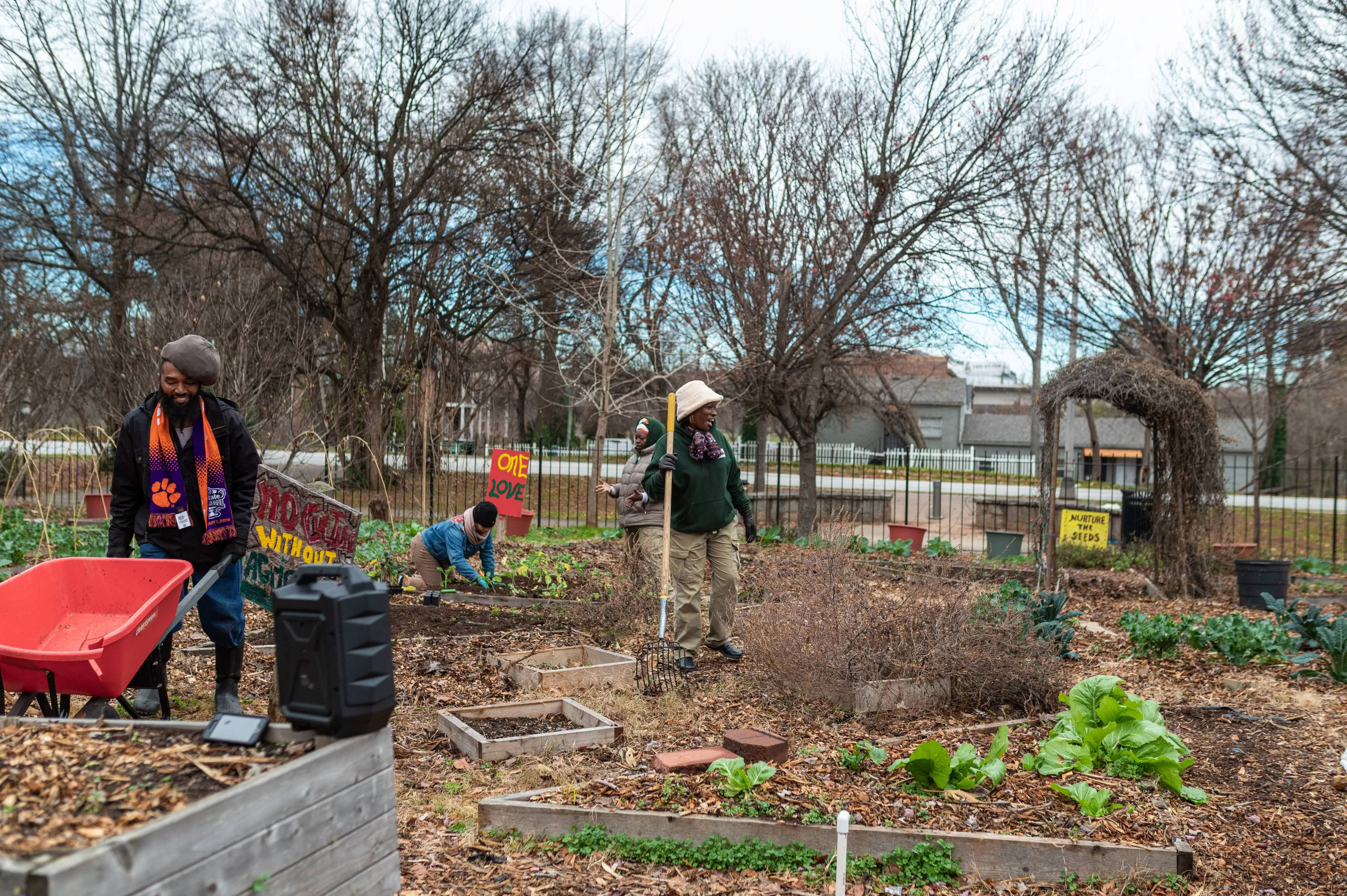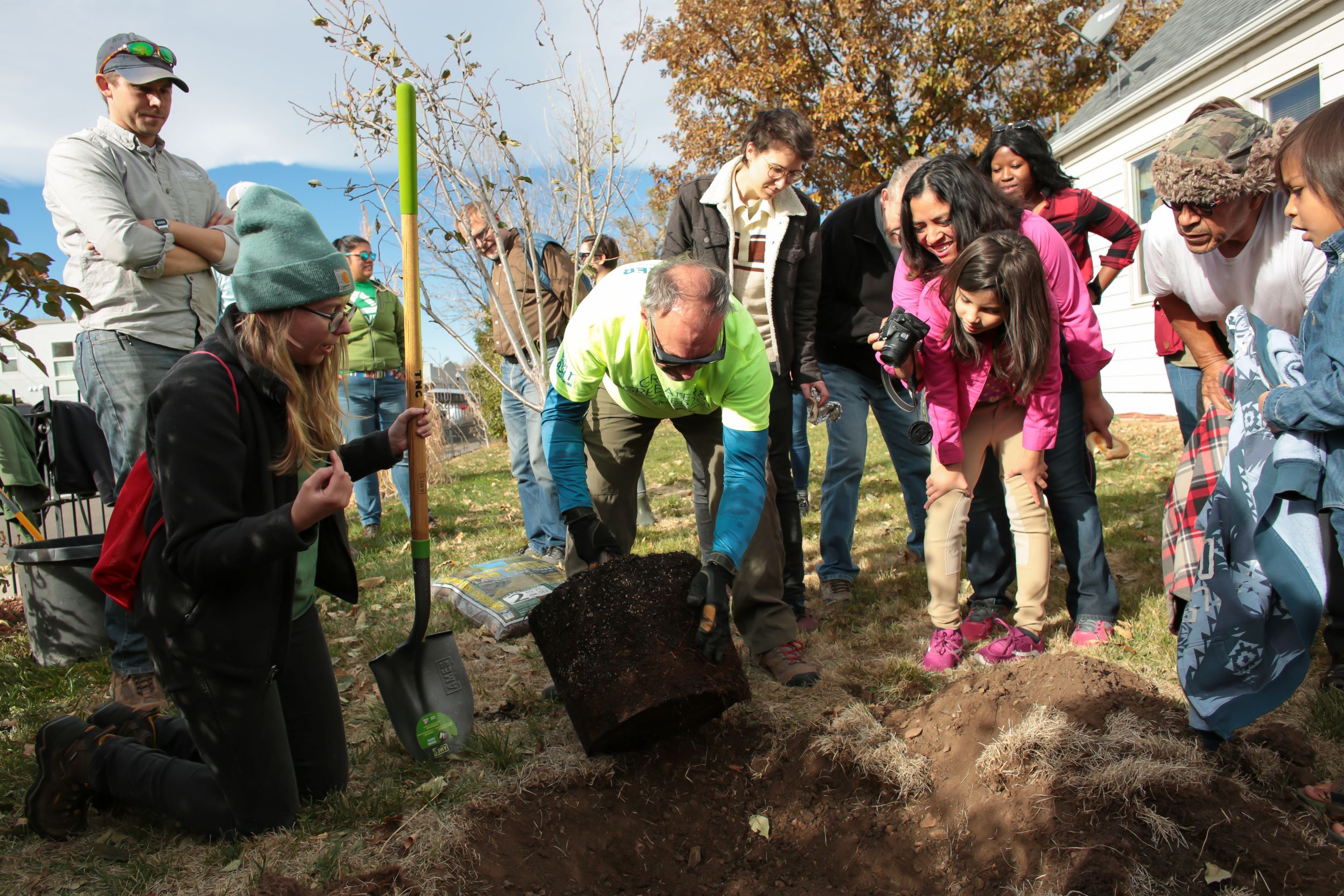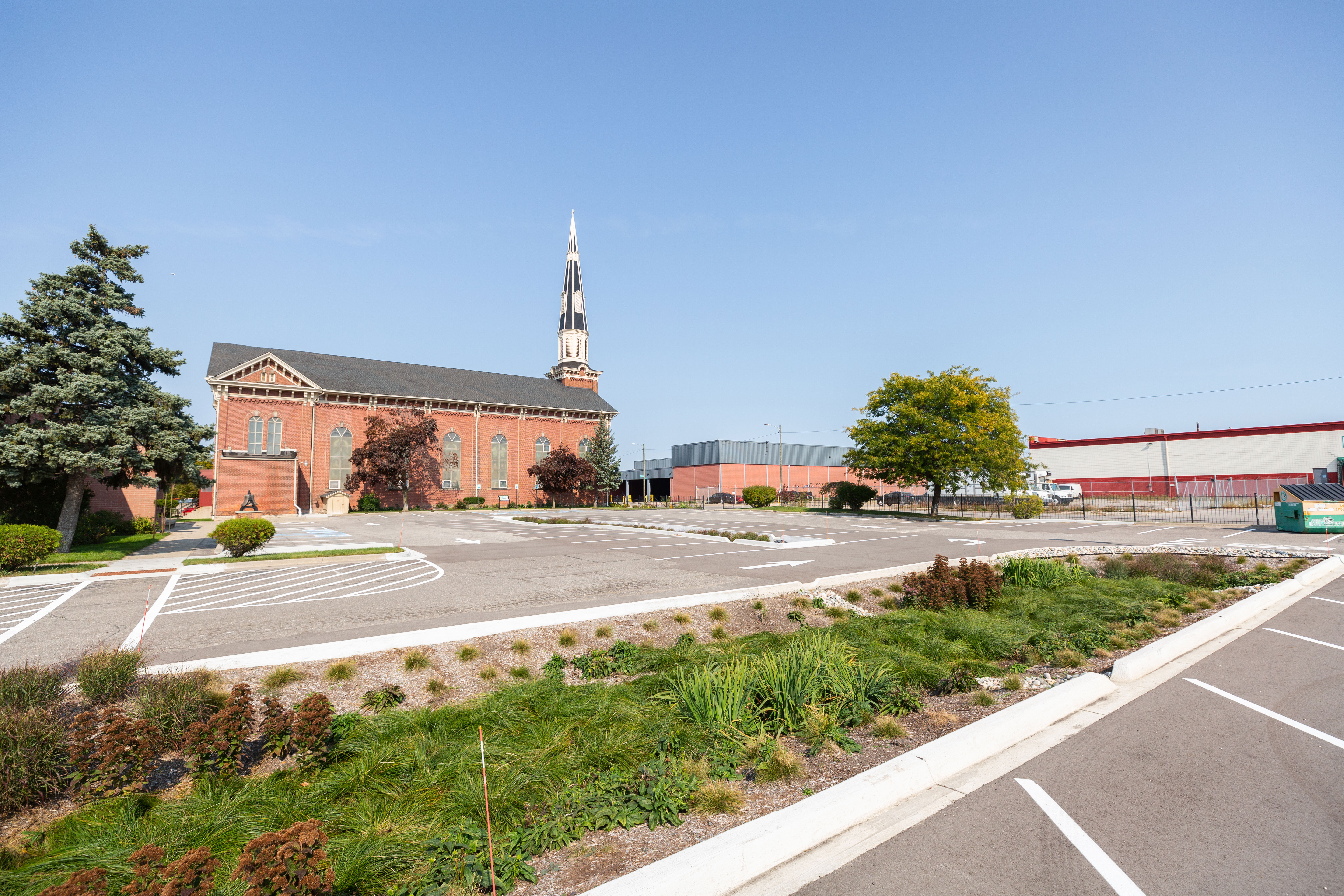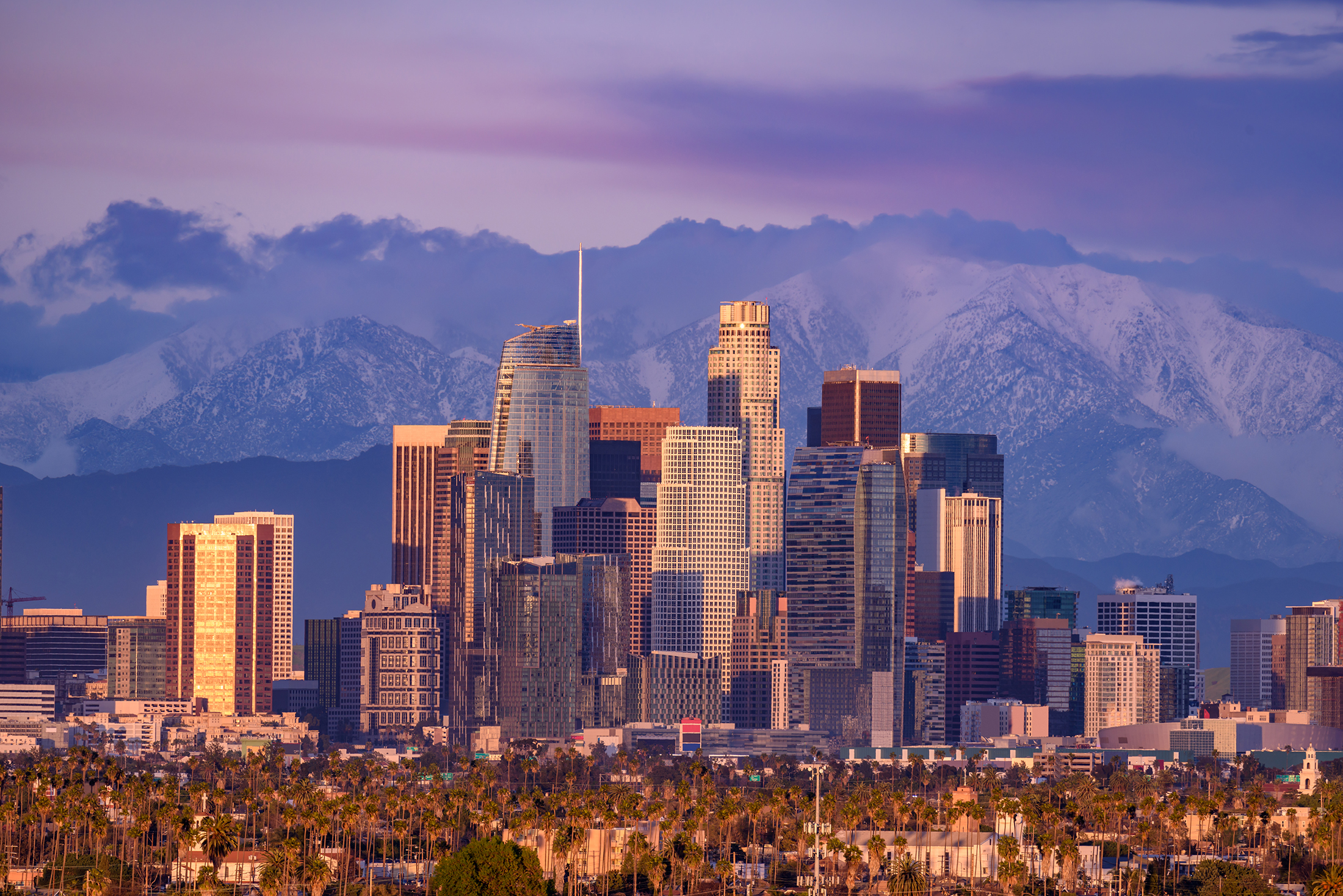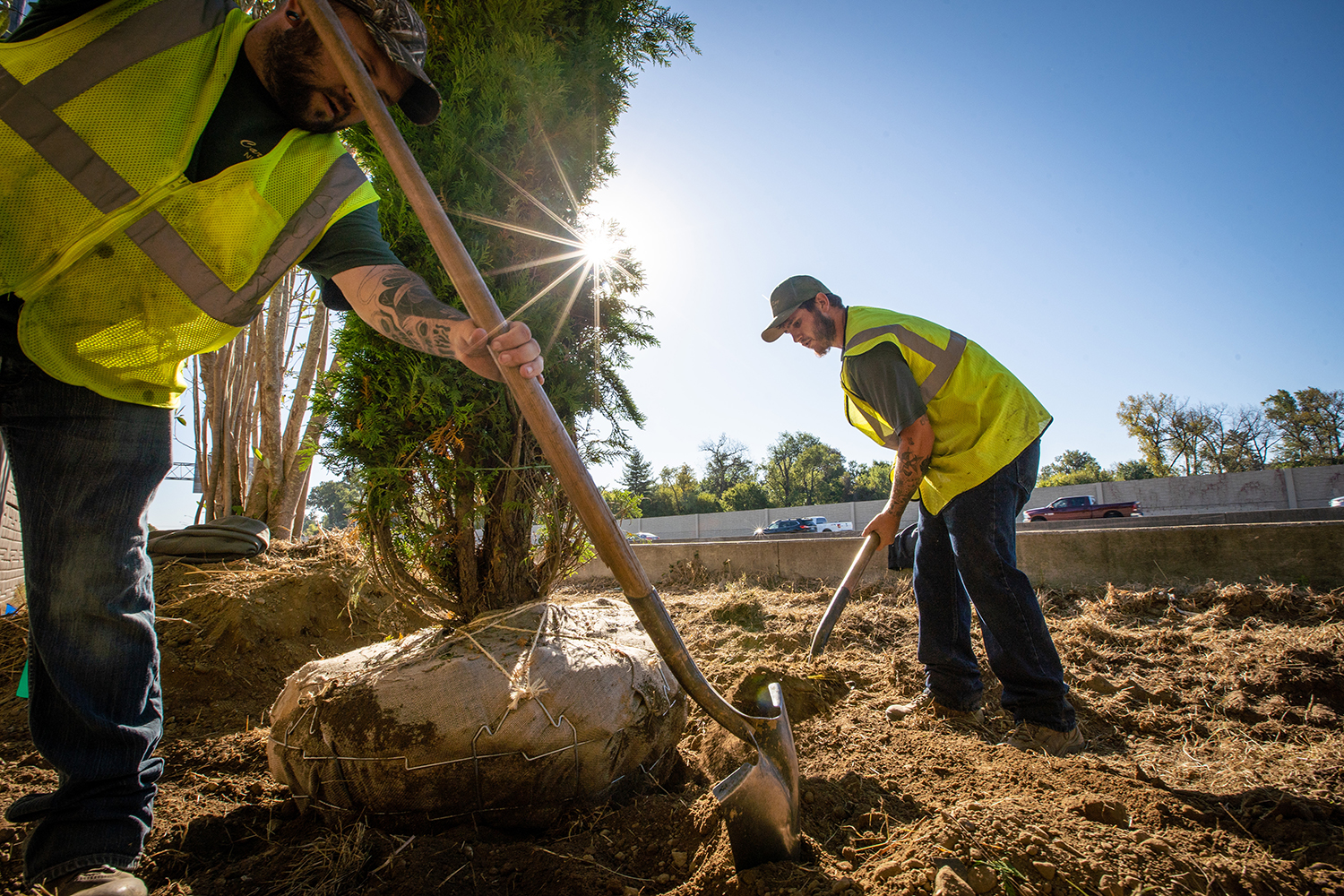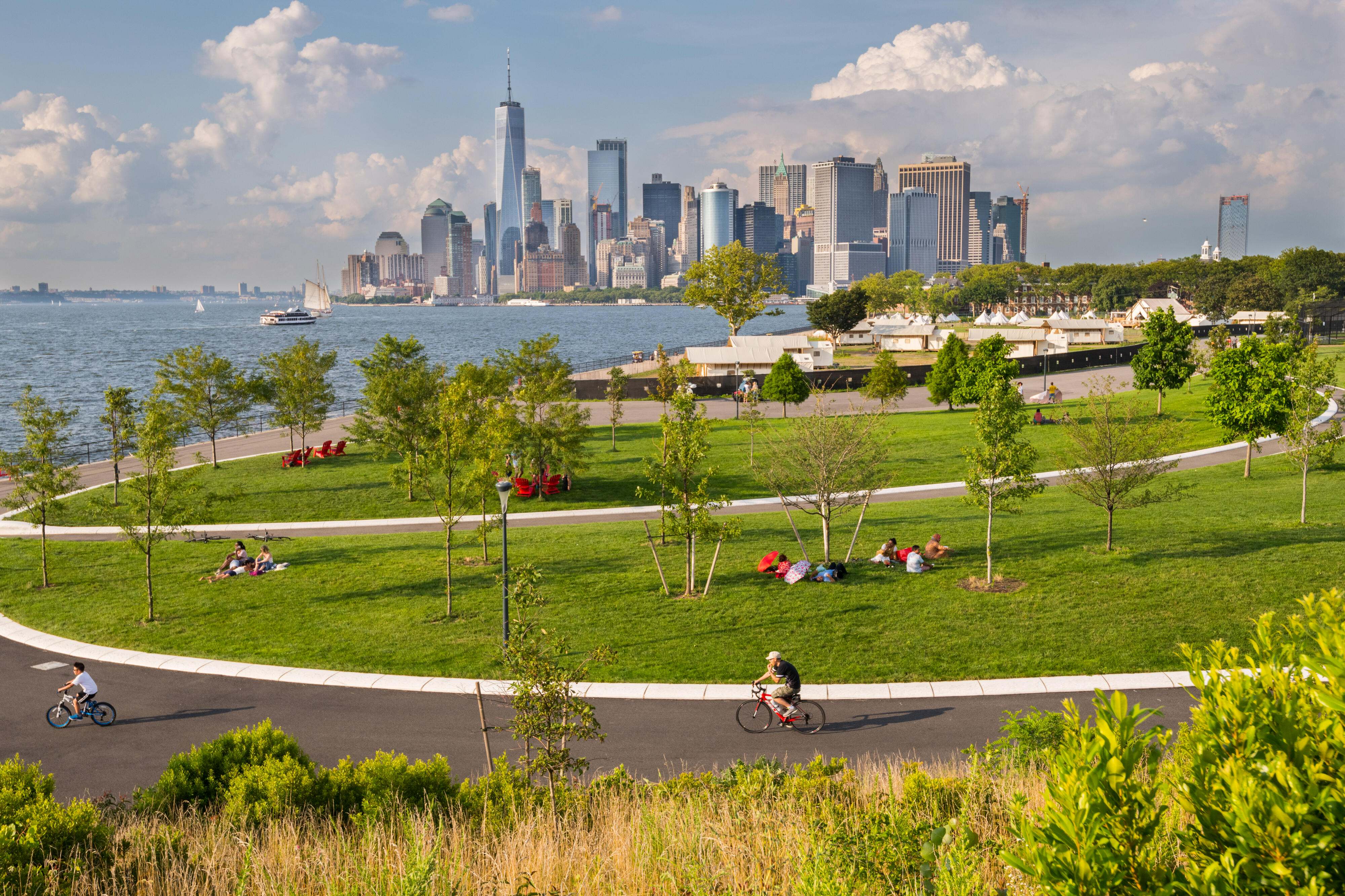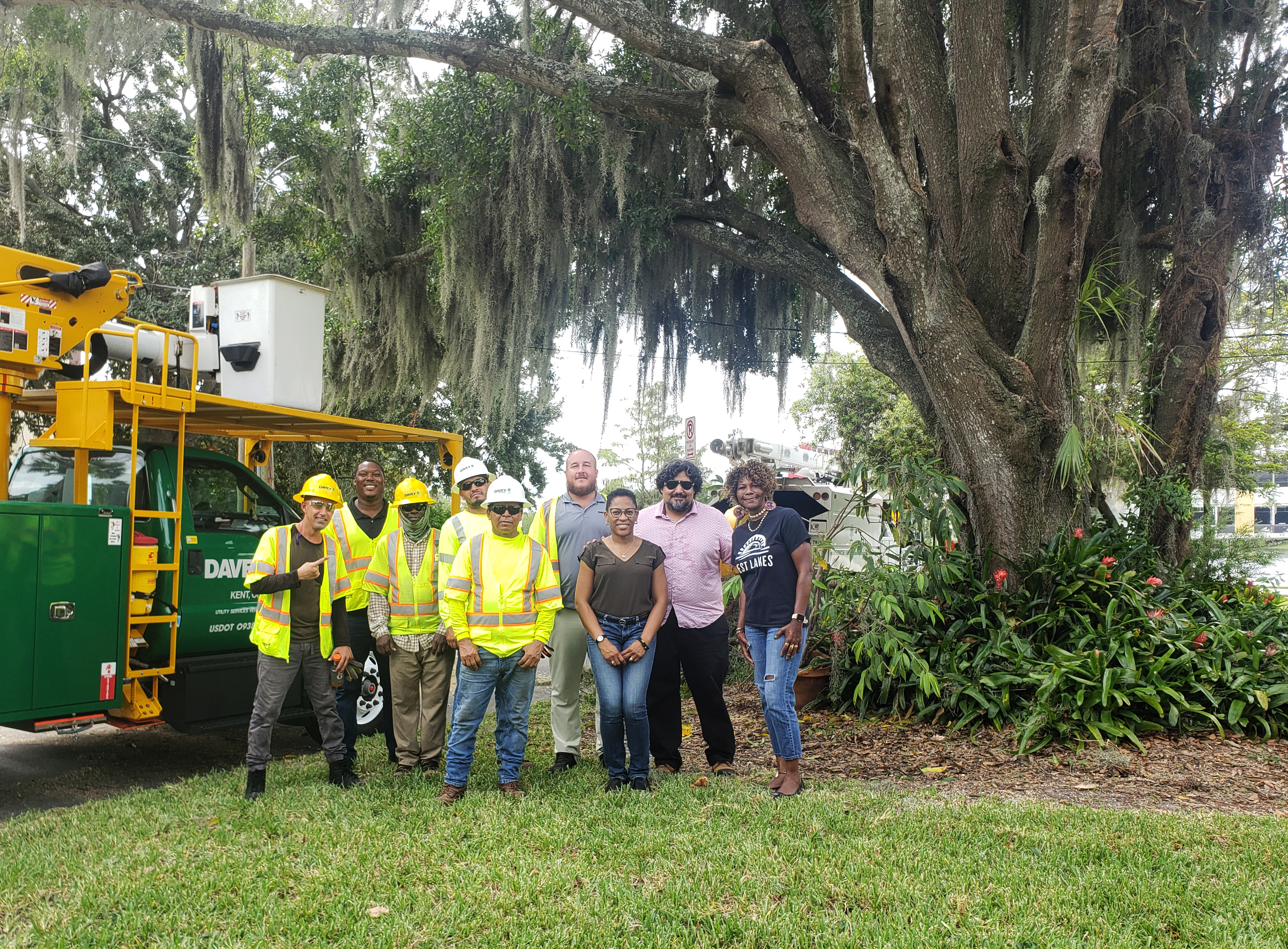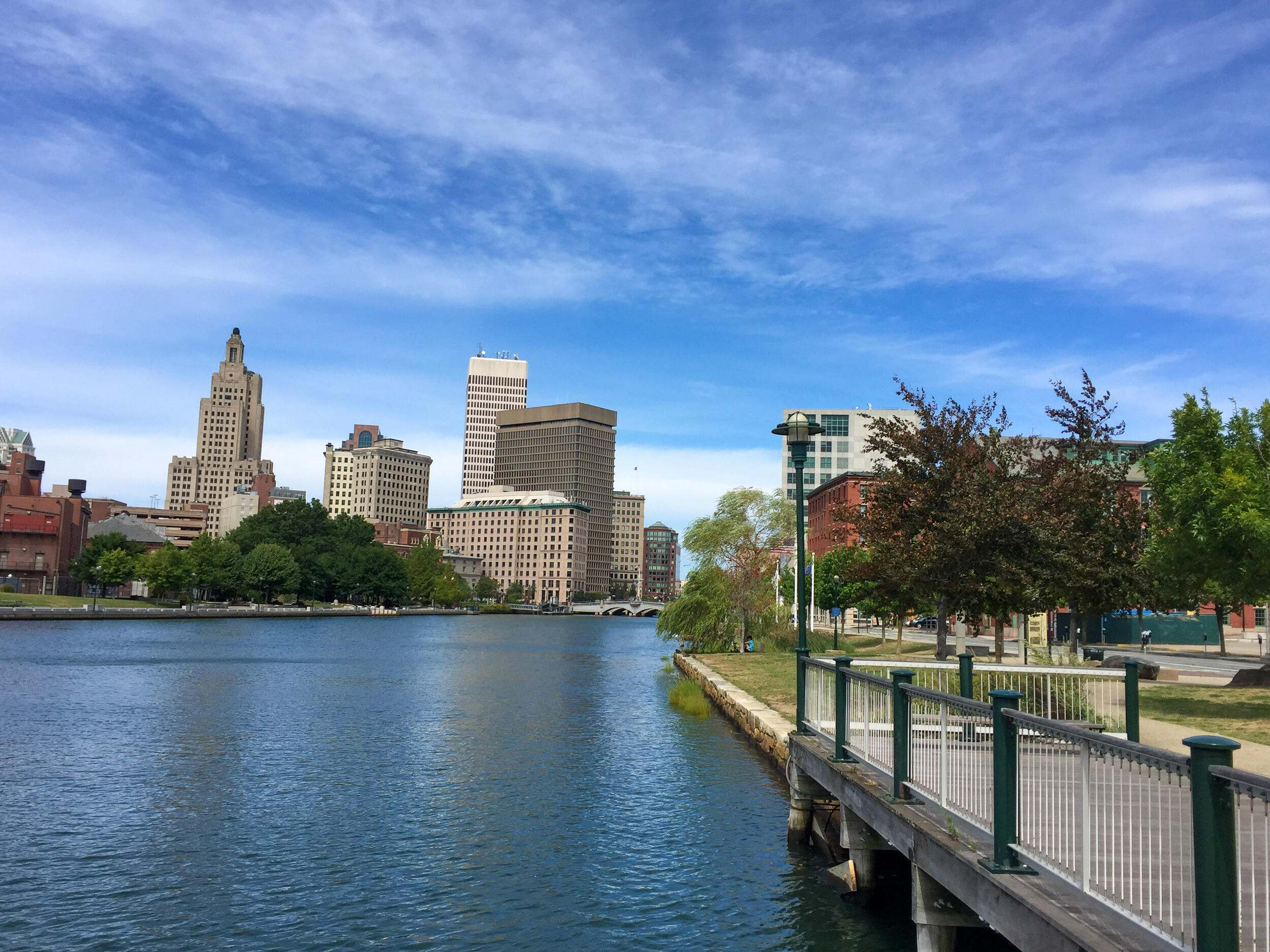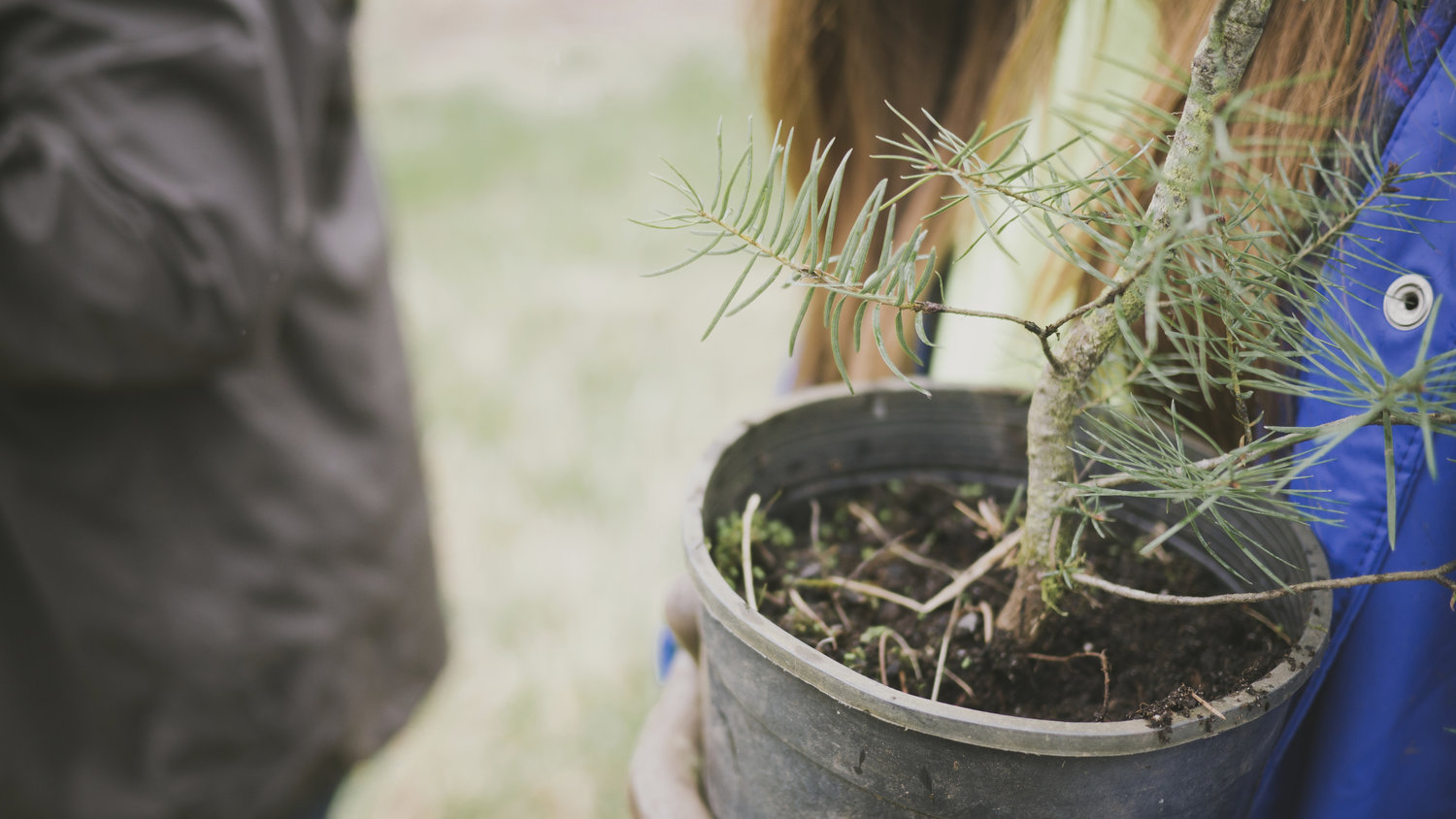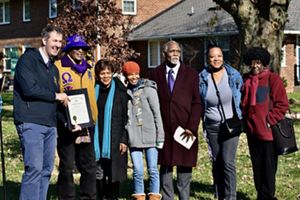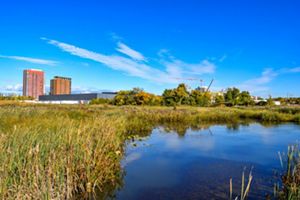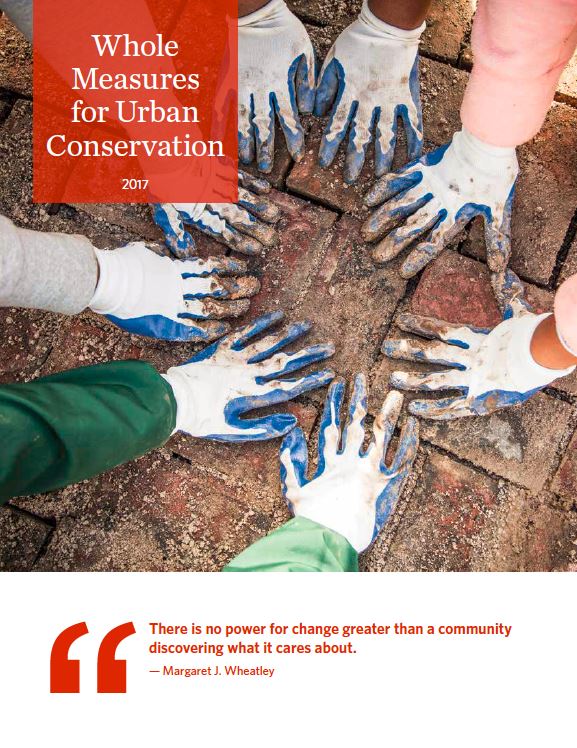To fulfill our mission to conserve the lands and waters on which all life depends, equitable conservation in cities is critical to addressing systemic environmental injustices and creating healthy and thriving communities and ecosystems.
Cities are home to more than 80% of the U.S. population and that number is expected to double by 2060. At the same time, climate change is having a disproportionate impact on frontline communities in cities and surrounding environments.
Since 2014, a network of TNC staff working in more than a dozen cities across the U.S. has been committed to partnering with community-based organizations to co-create equitable conservation practices and nature-based solutions that address the voice and vision of local communities.
By taking the time to understand the relationship of people and nature, our community-centered approach seeks to equitably improve the well-being of city residents and the environments in which they live.
Where We Work
The Cities Network is designed to foster innovation and learning through structured communication, capacity building and best practices that can be universally shared.
City Programs
No results are shown. To see results, turn on the toggle switches in the legend.
- Atlanta, Georgia
-
Atlanta, Georgia
City programs
Our vision is to fundamentally change the relationship between Georgia’s cities and nature, so that both can thrive.
- Baltimore, Maryland and DC
-
Baltimore, Maryland and DC
City programs
As the capital region experiences record rain and heat, TNC is working with community partners and landowners to implement natural solutions to address the challenges of deadly heat waves, flooding and stormwater runoff, the fastest growing source of pollution to our rivers and to the Chesapeake Bay.
- Bridgeport, Connecticut
-
Bridgeport, Connecticut
City programs
Connecticut’s cities team is reimagining how nature can be integrated into Bridgeport and partnering with the community to develop a neighborhood vision in which nature-based solutions can have the most impact to the health and well-being of local residents.
- Chicago, Illinois
-
Chicago, Illinois
City programs
The Nature Conservancy is partnering with community groups, state and federal agencies, universities and other stakeholders to address the environmental challenges the Windy City faces.
- Denver, Colorado
-
Watch Video
Denver, Colorado
City programs
Smart urban planning that advances nature-based community resilience, urban habitat connectivity and equitable climate action can ensure we all thrive together—and the Denver metro area could lead the way.
- Detroit, Michigan
-
Watch Video
Detroit, Michigan
City programs
TNC is advancing green stormwater infrastructure (GSI) solutions nature-based, engineered features like rain gardens—to manage stormwater runoff, protect clean air and water and increase access to greenspace. By tapping into the power of nature, here at the heart of the Great Lakes, Detroit can help lead the way to a brighter future for our cities and the freshwater resources we all depend on.
- Los Angeles, California
-
Los Angeles, California
City programs
We are creating a new model for urban conservation by using natural solutions to increase biodiversity, reconnect urban communities with nature and help secure Los Angeles’ water future. TNC is driving change in four major areas: policy, market solutions, science and on-the-ground projects.
- Louisville, Kentucky
-
Louisville, Kentucky
City programs
In the fall of 2017, The Nature Conservancy and partners launched the Green Heart Project to examine the link between neighborhood greenery and holistic human health. This five-year, collaborative effort—led by the University of Louisville Envirome Institute, Hyphae Design Laboratory and TNC—could inform new, cutting-edge municipal decision-making processes that connect nature with health.
- Milwaukee, Wisconsin
-
Milwaukee, Wisconsin
City programs
The Milwaukee Cities Program is working to help address critical conservation challenges—water quality and flooding, habitat quality and climate resilience—by building partnerships to amplify and complement the work of others.
- New Jersey
-
New Jersey
City programs
The New Jersey Greening Our Cities team's vision is to achieve greener, more resilient cities in New Jersey through meaningful engagement and collaboration with community, anchor institutions and other stakeholders and implementing impactful Conservation efforts.
- New York, New York
-
New York, New York
City programs
Keeping trees healthy and expanding their canopy helps sustain and increase the urban forest’s many benefits, from keeping areas cooler in the summer by reducing the urban heat island effect, to absorbing stormwater and supporting people’s wellbeing and quality of life.
- Orlando Metro, Florida
-
Orlando Metro, Florida
City programs
TNC is playing an important role connecting scientists, decision makers, community members and nonprofit organizations in the Orlando Metro area so that, together, we can find solutions to development challenges and threats to natural ecosystems.
- Philadelphia, Pennsylvania
-
Watch Video
Philadelphia, Pennsylvania
City programs
In Philadelphia, our strategies include promoting solutions to help absorb stormwater, planting trees to help cool cities and reduce air pollution and engaging and inspiring the next generation of environmental stewards to tackle the challenge of making cities more sustainable places to live.
- Phoenix, Arizona
-
Phoenix, Arizona
City programs
In Phoenix, we're working on solutions to extreme heat by engaging with residents to identify locations that could benefit from nature-based solutions to cool, such as trees and by working with residents to increase their capacity to advocate for solutions.
- Portland, Oregon
-
Portland, Oregon
City programs
To improve the equitable distribution of trees and the many benefits they bring, a group of local partners—The Blueprint Foundation, The Intertwine Alliance and The Nature Conservancy—created an initiative called Connecting Canopies to bring together neighborhoods, government, partners and businesses to create inclusive and sustainable action plans for urban tree planting and stewardship.
- Providence, Rhode Island
-
Providence, Rhode Island
City programs
In Providence, top priorities include reducing stormwater and nutrient pollution in urban rivers and upper Narragansett Bay, restoring degraded fish and wildlife habitats and improving air quality through urban forestry.
- Puget Sound, Washington
-
Watch Video
Puget Sound, Washington
City programs
Making cities more resilient and livable, and building support for nature through the development of green infrastructure and natural solutions to pollution.
- St. Louis, Missouri
-
St. Louis, Missouri
City programs
The Nature Conservancy’s Missouri Cities Program works alongside local communities to grow equitable, nature-based solutions that aim to improve the health, well-being and quality of life for both people and nature in the St. Louis region.
- Wilmington, Delaware
-
Wilmington, Delaware
City programs
In Wilmington, we are promoting nature-based solutions to address a wide variety of social and environmental challenges and demonstrating the efficacy of our projects through sound research and evaluation. We are also working to inspire the next generation of environmental stewards and engage residents in community science research to improve water quality and the health of urban forests.
By the Numbers
-
8
billion people in the world
-
50%
of the world's population currently live in cities
-
89%
of the U.S. population will live in cities by 2050
